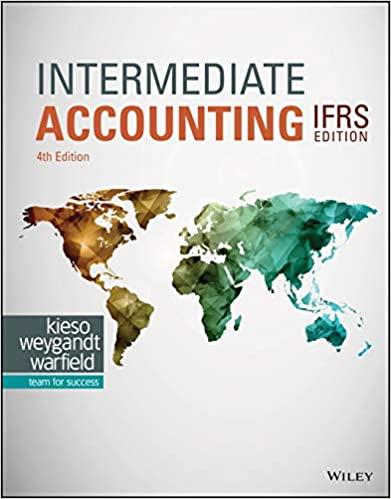Question
Directions: For this you will need to evaluate the scenario Product Launch (below) and determine which of the two products, Redesign or New, the company
Directions:
For this you will need to evaluate the scenario "Product Launch" (below) and determine which of the two products, "Redesign" or "New", the company should launch and at what price point.
Scenario: "Product Launch"
You are the lead project manager for two product launches. Product Redesign is a redesign of your company's bestselling product. Product New is a completely new product in a new product category. The initial plan is to price product Redesign at $400 per unit and product New at $600 per unit. Based on these prices and a marketing budget $8,000,000 dollarsover 5 yearsplus compensating the company's direct sales staff with a 5% sales commission on the purchase price of the product for each unit that they sell, the head of marketing believes that over the next 5 years the company could sell anywhere from 300,000 to 550,000 of product Redesign and 150,000 to 350,000 of product New. He believes that there is a 50% chance that demand will be at the low end and a 50% chance that demand could also be at the high end, in essence an equal chance that actual demand will fall anywhere on this demand curve.
In order to understand the impact to the company's financial position, you discuss with the Vice President of Operations the operational cost structure of these two products. For product Redesign, she is projecting that the company will need to invest $20,000,000 for manufacturing equipment which will allow the company to make 450,000 units of this product over 5 years. For product New, she is projecting that the company will need to invest $26,000,000 for manufacturing equipment which will allow the company to make 350,000 units of this productover 5 years. As seen inExhibit A
Exhibit A: Operational Costs
Product Redesign Product New
Initial capital equipment 20,000,000 26,000,000
Incremental capital equipment to expand 10,000,000 5,000,000
Material cost per unit $140.00 $240.00
Direct Product Labor cost per hour $27.50 $25.00
Direct Product Labor hours to make one unit 3 2
Management Salary Per Year $100,000 $100,000
Supervisor Salary Per Year $75,000 $75000
Number of Managers 3 3
Number of Supervisors 10 10
The V.P. of operations has also developed a thorough list of the raw material and labor cost needed to manufacture each product as well as the manufacturing overhead. As you study this information you notice an interesting detail, the company will struggle to meet the high end of the demand curve for both products with its current manufacturing capacity. You discuss this limitation with the VP of Operations. In your discussion, she feels that with an additional investment of $10,000,000 dollars for product Redesign, operations can increase capacity to 750,000 units over 5 years, and for an additional investment of $5,000,000 dollars for product New, operations can increase capacity to 475,000 units over 5 years. However, based on your initial breakeven analysis this additional investment will not pay for itself unless demand for both products significantly increases.
Based on this dilemma you strategize with the VP of Marketing on ways to increase demand. He proposes to lower the price of each product. The V.P. of marketing believes that if the price of product "Redesign" is lowered to $370 per unit, forecasted sales will be anywhere from 400,000 to 800,000 units. If the price for product "New" is lowered to $550 per unit forecasted sales will be anywhere from200,000 to 425,000units. Again, he believes there is an equal chance that actual demand could be anywhere on this forecasted demand curve. What decisions do you make?
Your analysis will include evaluating the expected operating profit, operational risk, and economies of scale under each of the following four scenarios:
- Price product Redesign at $400 per unit and keep capacity at 450,000 units
- Lower the price of product Redesign to $370 per unit and expand capacity to units 750,000
- Price product New at $600 per units and keep capacity at 350,000 units
- Lower the price of product New to $550 per units and expand capacity 475,000 units
Part A: "Analysis"
Question 1: From the four scenarios listed, which scenario adds the most expected total profits over a 5-year period?
Question 2: Which of the four scenarios exposes the company to the least amount of operational risk over a 5-year period?
Question 3: Explain conceptually which of the four scenarios you believe provides the company with the greatest economies of scale and then discuss the quantitative metric(s) you would use to measure this?
Question 4: Lastly, discuss which product you would launch and at what price point (i.e., which of the four scenarios do you recommend)? Please provide a detailed explanation to support your answers.
Part B: "Support"- Based on the scenario that you recommended in question 4 what is the scenario's:
Question 5: Total fixed cost?
Question 6: Total variable cost per unit?
Question 7: Contribution margin per unit?
Question 8: Break-even point of units sold over 5 years?
Additional Assumptions and tips:
- Most important, assume a 5-year time horizon in your analysis.
- As noted in the directions assume that at each price point you have a 50% chance of reaching the lower end ofunits demanded and a 50% chance of reaching the higher end of units demanded. In essence there is an equal chance the actual demand can be anywhere on the demand curve for each product.
- Use your contribution margins for each of the scenarios and corresponding price points to calculate a profit range.
Step by Step Solution
There are 3 Steps involved in it
Step: 1

Get Instant Access to Expert-Tailored Solutions
See step-by-step solutions with expert insights and AI powered tools for academic success
Step: 2

Step: 3

Ace Your Homework with AI
Get the answers you need in no time with our AI-driven, step-by-step assistance
Get Started


